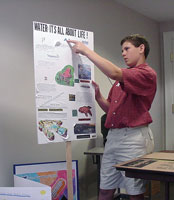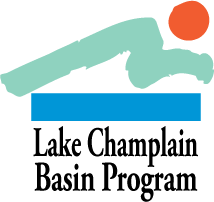Curriculum Tools
By exploring the Lake Champlain Basin, students can learn the stories of the watershed in tandem with their traditional school subjects. When we work with teachers in Watershed for Every Classroom they work throughout the program to create curriculum to use in their classroom. The teachers create two products as the main outcome of the course—a group of lessons that allow their students to engage authentically with the stories of their watershed and a unit that is an overall plan for these experiences.
A lesson is a focus on a particular segment of the unit that is an “identified chunk” of the essential question. The lesson might focus on certain vocabulary, specific content, or a skill. For example, before taking students on a field trip to a nearby pond, a teacher might give a specific lesson on nature journals on the school grounds. Students might see examples of and practice different techniques of observation: recording, drawing, and notation. This would align with assessment criteria such as the ability to represent observations in the natural world both visually and with words.
When designing a lesson, the teacher asks: How can I design a single meaningful learning experience in a place in the watershed? A single experience orchestrates a way for students to meaningfully engage in place and learn specified content.
A unit is a plan for learning over time during which students have the opportunity to explore, practice, and learn a big idea. The teacher asks: How can I design a plan for a cohesive series of experiences that leads students to an identified end result? A unit will contain “traditional” lessons where students read textbooks, take tests, and write research papers as well as field experiences where they learn new information and skills in the local landscape.
Samples of units—and some lessons—created by WEC teachers are posted in the Curriculum Library.
When teachers begin to consider their plans for a unit they use these questions:

- PURPOSE OF UNIT: What standards are you working with? What is the BIG IDEA/ESSENTIAL QUESTION?
- LEARNING ACTIVITIES: What will you do to teach this big idea?
- PRODUCTS AND PERFORMANCES: What will students make or do to show you (and them) what they are learning?
- ASSESSMENT: How will you (and they) know what they have learned?
We have developed these templates for use when designing curriculum for watershed education:

